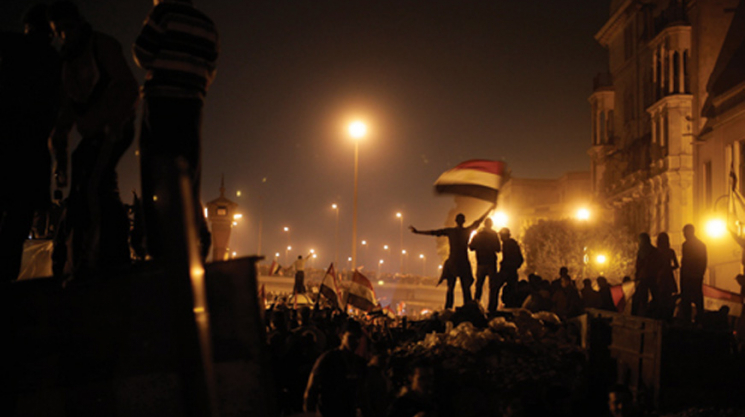
Sun, 05/01/2011 - 00:00 by AltaGrade
DEEP COVERAGE
It’s 2:46 AM here in downtown Vancouver. The last of the bars have closed and the streets are silent and cold. I’m talking to Ed Ou, a 24-year old Canadian photojournalist who has been bouncing around the Middle East and taking some of the best photographs to emerge from the conflicts, protests and revolts of 2011’s “Arab Spring.”
Ou is something of an accidental wunderkind. When he was 18 he was studying international relations and Arabic in Jordan when the Israel-Hezbollah conflict broke out in Southern Lebanon. He went to Beirut, started taking photos, and soon after landed a gig with the Associated Press. He’s been running around the Middle East and Africa ever since.
Right now he’s standing on the street in Cairo, and I can hear the city blast through my scratchy iPhone speaker as he talks over the mid-day urban chorus, describing what he’s been up to over the last week… a hectic week, no doubt. Events in North Africa have started to accelerate at such a velocity that nothing stays the same for more than 24 hours, and there’s a realistic chance that by the time you read this interview, the political landscape of the Middle East will have become unrecognizable from what it is today.
Where are you now?
I’m in Cairo. I just got out of Libya a few days ago.
How was Libya?
Libya was pretty, uh, I’m not sure what the word is. It was a pretty dynamic experience. I was part of a team, working on a feature on non-conflict related stuff and I got to see a pretty interesting side of Libya, a side that most journalists didn’t get to see. It was really really stressful, and also really tiring. I just spent the month before covering Cairo, and then before that I was in Vancouver shooting the Downtown Eastside. Libya was intense because there were a lot of strange dangers that would pop up for journalists. We were one of the first going into the country and there was a lot of uncertainty as to what we were covering. It’s been really intense, but also really boring. The situation keeps on changing. Four of my colleagues went missing and only yesterday did they get released.
So is that something you’re worried about – being abducted or arrested or worse?
Well actually, there was a funny time when Gaddafi’s forces were advancing on Benghazi. There was another desert road they could have taken called Tobruk, and if they had done that we would have been totally cut off, we wouldn’t have been able to leave Benghazi. It was that day when our colleagues had also turned out missing, and so The Times editor just told me to leave and go back to Cairo.
Given the experience, specifically of The New York Times, of the four people that went missing, I don’t think The Times is in a rush to send anyone back, which is unfortunate but at the same time understandable. Yesterday, or two days ago, three more journalists went missing; two AFP (Agency France Presse) reporters and a Getty Images photographer. So there’s a lot of risks involved in covering this story, but we never expected this to last a month, and it remains to be seen how long this conflict will go on for.
We thought that it would be like Cairo or Tunisia, but months later it’s still going on and it doesn’t look like things are going to end any time soon.
It looks like the situation over there has become more complicated rather quickly.
And the other thing too is that, comparatively, the experience in Cairo and Tunisia was relatively, not to say that no one was injured or killed, but it wasn’t at all a war. Egypt in itself had its own insane complications and difficulties involving people tracking down journalists, beating us up, roughing us up, stealing our equipment, that kind of stuff. But at the same time, weapons weren’t involved.
So did you get out of Libya before the allied coalition started to attack?
I left right before the no-fly zone. We didn’t know if it would be in effect, so most journalists left the same day or right before I did, because it seemed imminent that Gaddafi’s forces would advance on to Benghazi, which actually was the case until the no fly zone came into sight.
It was a really uncertain time, and so I guess our news organizations decided to be more conservative in covering it. It’s hard because you want to be here to cover the story, but you are at the mercy of what the desk tells you. Sometimes people can make more informed decisions than you can when they’re out of it. They can see the larger picture for what it is.
How far is Benghazi from Cairo? Are you driving back and forth?
It’s a sixteen hour drive.
And what are you covering now?
We’re covering post-resolution stuff. We’re taking it day by day, trying to figure out what to do next, where to go next and what not.
How has the tone shifted in Cairo over the last couple weeks?
It’s interesting because on one hand things have changed and it’s pretty hopeful. I guess you could say it’s the first taste of what democracy might be like, the elections and the referendum. The polling was very orderly. There were no thugs standing around telling you what to do. There was some controversy but then again I think there will always be controversy when it comes to any democratic movement.
It will be interesting to see, but that said, there’s a lot of signs that nothing much has changed. There are still reports that the military is illegally detaining, arresting and torturing people, and armed thugs have still been attacking people. It’s hard to gauge what’s changed and what hasn’t.
As a photographer, it’s still difficult to work here. There’s still this xenophobia when it comes to foreign media. It’s strange. We’re all trying to figure out what the situation in post-Mubarak Egypt is.
You’ve been in the Middle East for a few years off and on?
I came here in 2007. The last place I officially paid rent in was in Israel/Palestine. That was three years ago. The last while I’ve been working a lot in the Middle East, mainly in Yemen, Israel/Palestine, Egypt. I’ve also been working and based out of East Africa in Nairobi, covering Somalia, Uganda, Sudan, and then during that same time I’ve been slightly based out of Istanbul covering Central Asia, mainly Kazakhstan, Kyrgyzstan, Uzbekistan. So… I don’t actually live anywhere.
Nice.
It’s really random where I get sent. For example, three months ago I was in Vancouver and I got sent there via New York.
What was it like to come back to Vancouver after being in the Middle East and Africa?
When I did the story on the safe injection site it was really the first time I worked back home as a photographer. I left in high school and I hadn’t really been back since. In that way it’s interesting to see the country where I grew up with fresh eyes and to see it in the context of being a photographer. On one hand you’d think it would be a lot easier because you know what to expect, how to talk to people, et cetera, and it was actually kind of a relief. It was sort of my first time working in an English-speaking country which is really refreshing. But on the other hand, it’s strange when you’re bringing your professional life into your home. I was seeing friends I hadn’t seen in a long time and picking up pieces of a life that I had left. In the meantime I’m working on a dynamic, long-term story, so, it was strange, but I’m really glad I did it.
Well, you have a novel, somehow alternative take on the issues and events you cover; for example, the “Getting into Cairo’s By-Ways” story. Why did you choose that approach, or how did that come about?
In most of the things that I do, I try to cover the news in a way that goes a bit deeper than what the expected news picture is supposed to be. Whether it’s Cairo or Libya, I think it’s important for people to understand that what we see is accurate, but, there are these universal emotions and truths that are relevant whether we’re in the Middle East or East Africa or Vancouver, Canada, … and I’m trying to find that as much as I can.
I’m trying to find these universal emotions that link someone to Vancouver to someone in Benghazi; sadness, grief, frustration, or anger. I think they’re not always in the places you’d expect, like on the front lines, and I think sometimes it’s easier to find them in these wider areas. I try to get off the beaten path to find those different photos. Sometimes it works, sometimes it doesn’t. It’s a very difficult balance to try to find these news stories that convey the information of what happened that day, and to also try to find your own angle.
You describe yourself as culturally ambiguous, what does that mean?
It’s kind of an inside joke. I’m Taiwanese Canadian. I spent all my life in Vancouver, but during this time, at least in the Middle East or anywhere outside Europe or North America, people really can’t seem to grasp the fact that I’m Canadian. People will just refuse to believe that. They’ll insist that I have to be Chinese, or have to be Korean, and I think in that way, there’s this ambiguity to who I am, which actually works out pretty conveniently. I can be a total westerner, or I can be from the east, or I can be Chinese. It’s kind of dumb but it helps the way I work.
For example, yesterday we were photographing these labour protests and I was with a colleague of mine from The New York Times, a big white guy, and people would refuse to talk to him, because you know ‘foreign western media’ but meanwhile they’re like ‘Oh! You’re Chinese. You must be a Filipino migrant worker!’ and so I’m like ‘I’ll get this.’ Sometimes it works, sometimes it doesn’t. It’s nice because at least here people see Asian as relatively benign. So it works out, even though on paper I’m totally Canadian.
How much gear do you usually haul around?
Because I haven’t really had a home, or any proper place that I live, I try to travel with as little stuff as possible. The interesting thing about working for an organization like The Times, is that they have resources everywhere you go, so a bunch of my stuff is in Nairobi, a bunch is in New York, a bunch of my stuff is here in Cairo, so that way I’m able to travel around really lightly knowing that there’s equipment somewhere else if I need it. So that’s really convenient. Also I wear the same clothes everyday, so that helps.
Sandals and cotton pants?
Yeah, something like that. Over time you just get really good at finding the lightest way to pack. Most times you’ll be able to find a toothbrush and toothpaste everywhere you go. The stuff I carry around is the stuff I can’t get where I am. So cameras and all that, but that’s about it.
It’s amazing how lightly you can travel. We have to carry around satellite transmission devices to get internet everywhere I go. It seems heavy but it’s not, and some of the time we have to carry around a bullet-proof vest. And that actually screws up the way I travel, because it’s one of those really heavy things that we almost never wear but need to have with us.
So if there’s some gunfire, you’ll strap it on?
Yeah, we use it in very specific places. For example, when I go to Somalia we use it. We brought it to Libya, but sometimes having body armour might draw a lot more attention. It’s always a constant calculation you have to make – will having body armour make you stand out in a bad way or will it not matter, and having body armour also makes it harder to run around. You’re always calculating the cost benefit – is this photo worth the risk? Is going here worth the risk? Should we just leave? Should we not leave? Sometimes you make good decisions, sometimes you make bad decisions. For example, that day that I left [Libya] I was kind of upset. I was like ‘No. I’m leaving a story in the middle of everything that’s happening’ and then three hours later it turns out my colleagues went missing.
You’re always stressed about whether you’re missing something, pushing it too far or not pushing it enough. You’re constantly stressed out over whether you’re in the right place at the right time. It sucks, it’s horrible.
And how do you forecast that?
You don’t. I haven’t been doing this that long, but I’ve been told that the longer you’ve been doing this the better you get at being able to assess where you should be, what story you should rush to, and what can wait. I’m still figuring that out as I go.
Right now I’ve been working for four to five months straight and I really would want to take a break but I just know that if I, let’s say, go to I dunno, Iceland for a nice vacation, I’ll be sitting around watching TV, anxious that I’m not back in the Middle East, but yet I’m in the Middle East right now and I’m really tired.
What’s the rest of your day looking like?
I have no idea. The writer is doing an interview and I’m hanging out in the street.

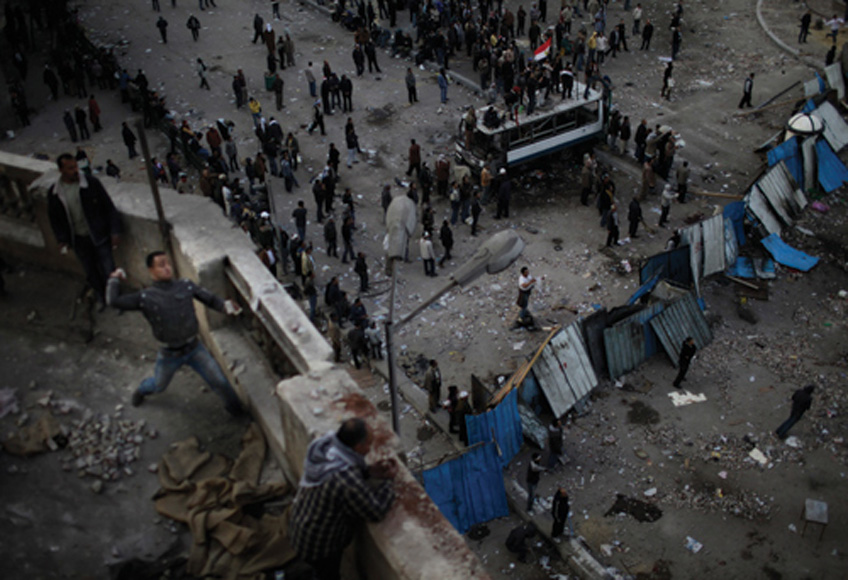

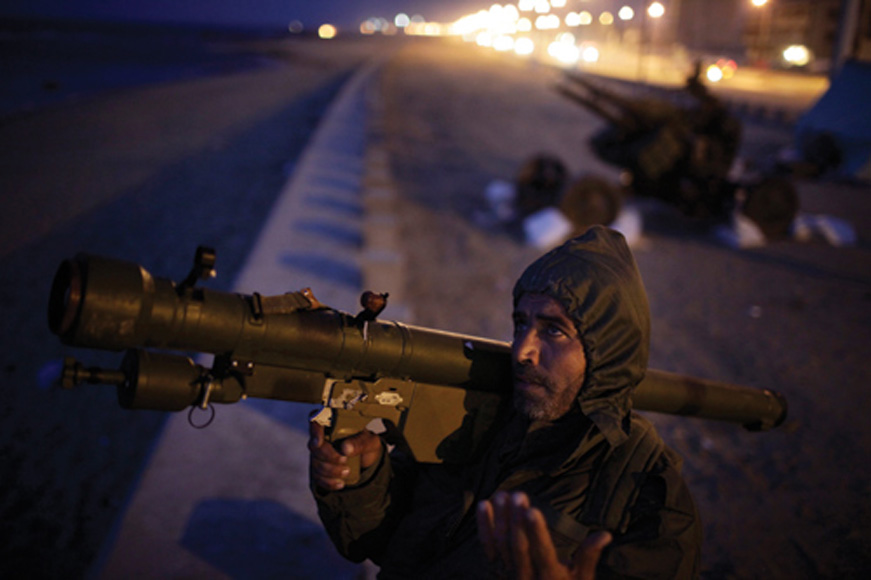
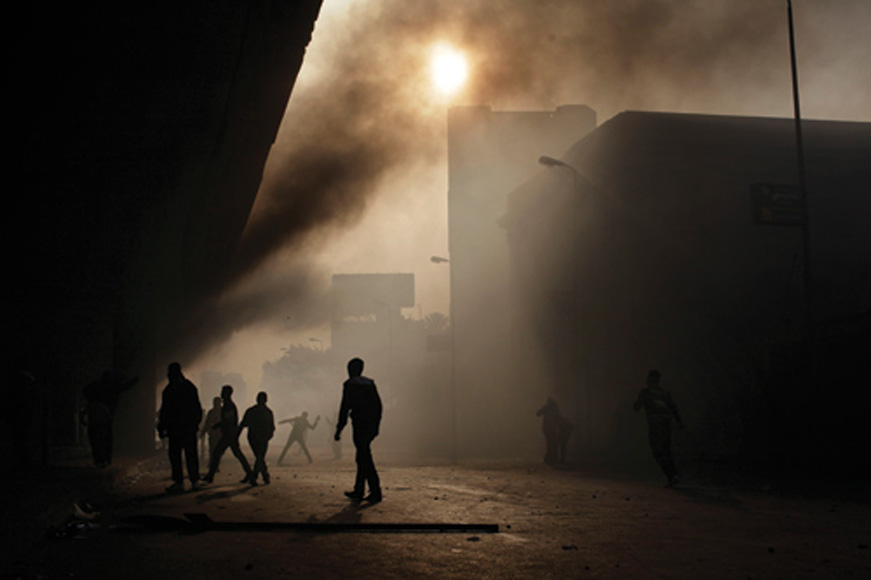
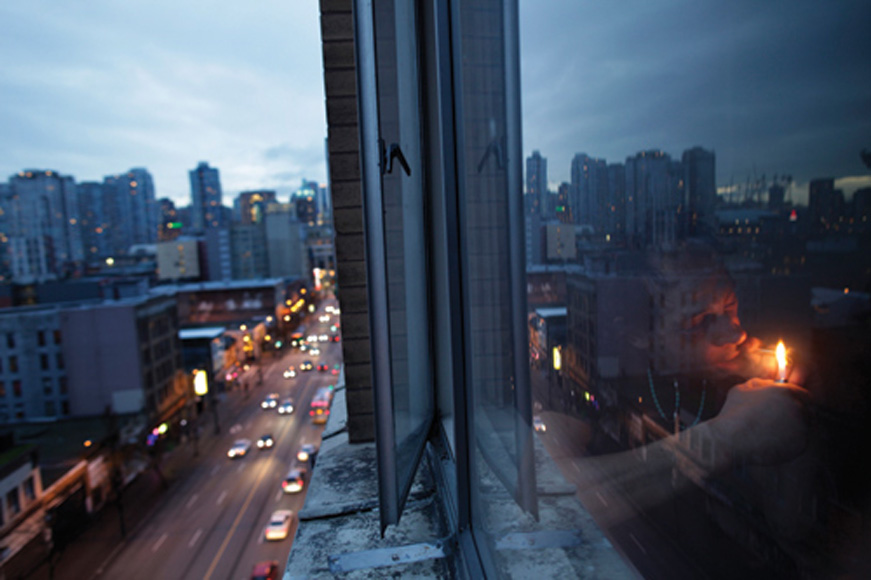
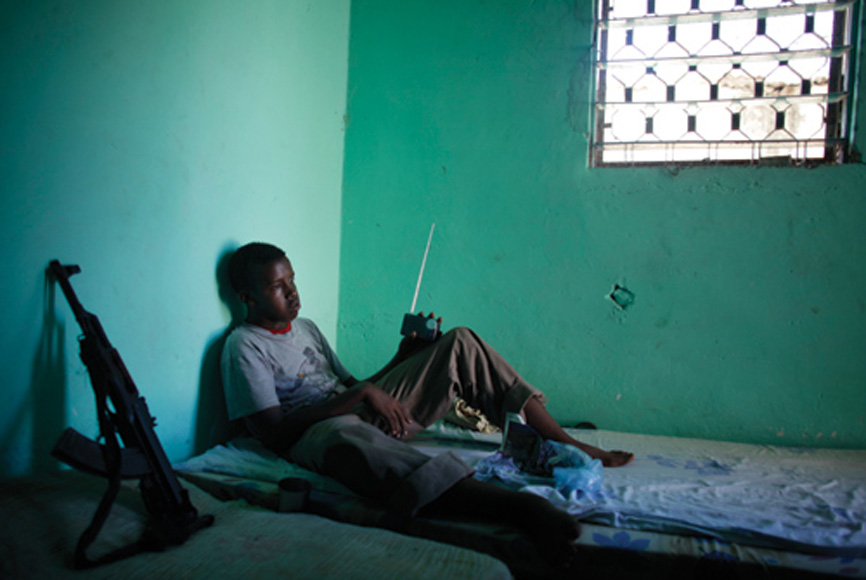
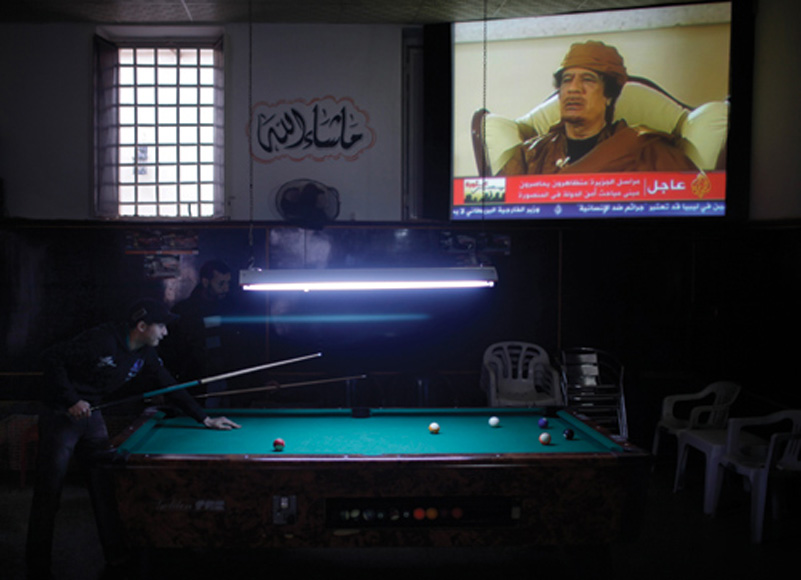
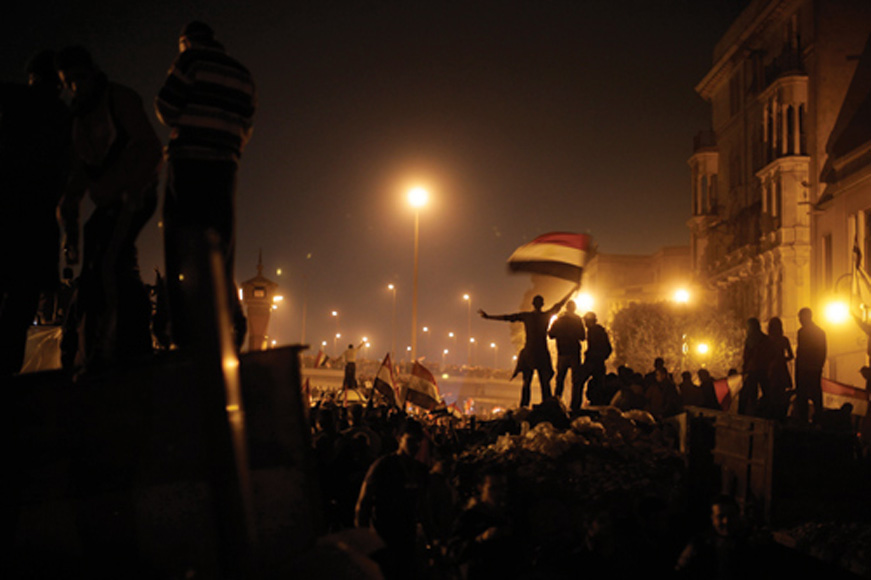

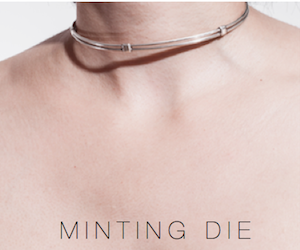



Add comment